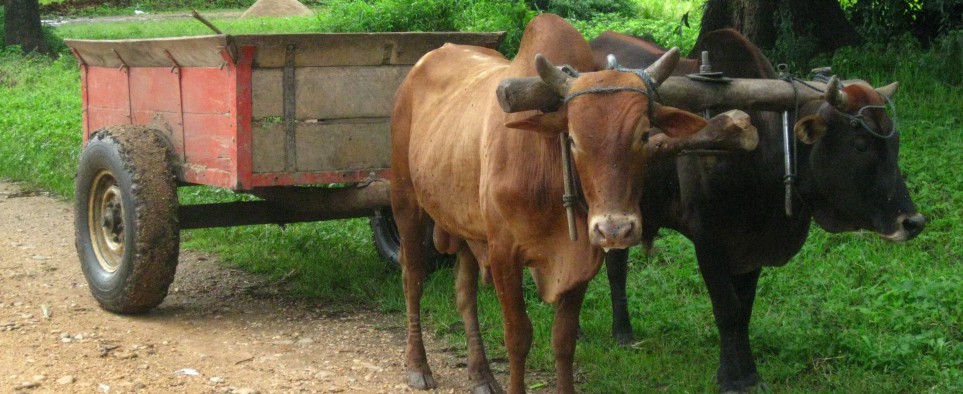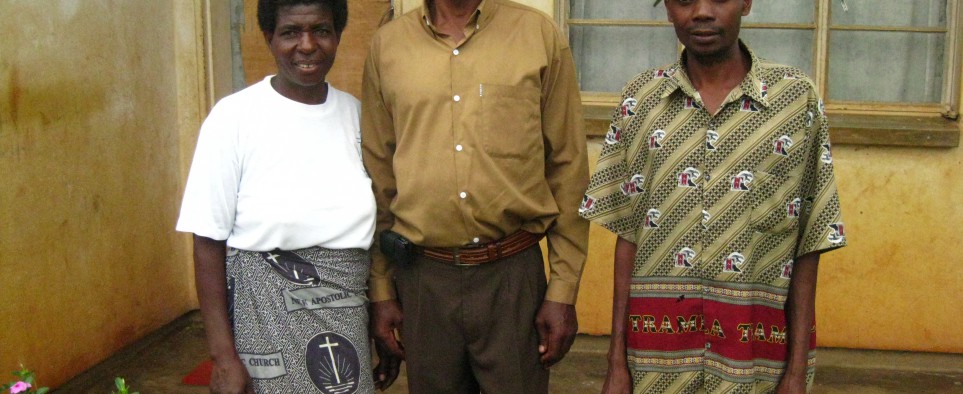When I was on my way to the hospital this morning I took the back way that no mzungu ever take. These gorgeous little children with the tiny legs and thinning hair and clubbed fingers of Aids babies chased me for as long as their weak little legs could carry them, just so excited to see someone so strange-looking. Then I got to the hospital and the fat director of services, in all his arrogance, informed me that obviously he would not know anything about illnesses in the district. GAH!
I kept having these “if I lived here, that could be me” moments when I was up in Kayelekera near the mine. A girl who can’t be more than 16, was lying in post-partum pain on a clinic cot, having just given birth to a baby. It wasn’t her first. This girl will make babies and meals (each requiring hours of preparation) and fetch water and carry heavy loads for the rest of her life. She will contract any communicable disease that her husband picks up when he sleeps with other women. It is likely that she will also have to ferret away money to make sure she can feed her family, because her husband may go drinking with friends and spend what money he makes. This comes from Lusayo, Sylvia, miners, and the village head man – I’m not just being judgmental. It’s also not an “evil” thing – social capital is derived from the connections men make during these nights out; to some extent it is important that they do this, but to another it is harmful to families.
Lusayo and Sylvia played accidental host to me when I went out to their village, Bwiliro, in a rainstorm and found the roads entirely blocked by stuck trucks when I attempted to leave.
Sylvia, my gorgeous, brilliant hostess, single-handedly runs the only clinic in a 30-mile radius. She delivered 2 babies in the course of my stay. Additionally, she grows her own corn, peanuts, potatoes, cassava and mangoes, cooks three elaborate meals a day – on a wood fire – and is the first wife of a man with HIV. Lusayo, her husband, took a second wife early in their marriage, who died shortly thereafter (no causes mentioned). Lusayo didn’t learn of his condition until 2006, when he had already retired from his job, was living on Sylvia’s pay check, and had declared himself the minister of a 2-family New Apostolic Church, which he joined when the Presbyterians booted him for polygamy. Sylvia won’t talk about his HIV.
He loves her, defers to her on topics about which she is more knowledgeable, and has begun to rethink polygamy, but he is forward-thinking for the region. The fact that he told her his HIV status sets him apart from most northern men, who won’t consent to HIV testing, let alone admitting a positive result. (More about that in another email. This is the “lives of women are tremendously hard” email.)
In America, Sylvia would have gotten a full NP certification, or would have gone to med school, and would have met and married someone who didn’t tell strangers (namely, me) about “the things that all men do” on extended trips to Nigeria. She would be a pillar in society without having to singe her hair keeping a wood-burning stove/oven flaming while cooking in between sprints up to the clinic to see patients.
The kicker, though, is that if these northern girls received an education beyond 5th grade, they could apply for mine jobs, have an income, obtain skills, and carry those skills to new jobs. The women working on the mine all come from farther south, where girls don’t find the notion of being paid for their labor nonsensical. I hope the mine will change that. Women walk 20 km a day fetching water. They plant and harvest corn and dig latrines, all with babies strapped to their backs.
At the (only) local secondary school, 47 boys are enrolled, and six girls are. I asked the teacher why and he said “marriage.” Of the 7 girls he had last year, 6 are now married. Once a woman is a wife, she can’t be a student. But so few enroll in the first place because if a girl is just going to get married and join her husband’s family, her own family doesn’t see the value in spending money on her education; she’ll just carry any benefits of that education out the door.
Parents who do value education have a different set of reasons for keeping their girls from secondary school: safety. Schoolgirls are easy victims of seductive, wealthy men. Parents worry that if they send their girls to secondary school (which almost always involves leaving the village and going to a town), their broke, hungry daughters will be seduced by rich, urban men and get pregnant or fall into prostitution. It brings the challenge home: unless my parents could ensure that my sisters and I were safe in student housing, they would never consent to send us off to high school. Such luxury is limited to the very wealthy.





